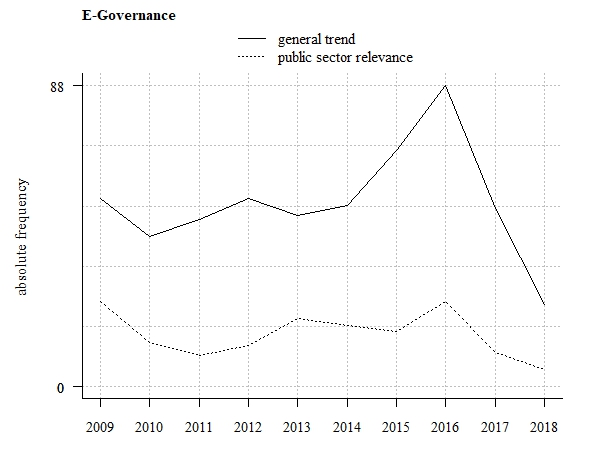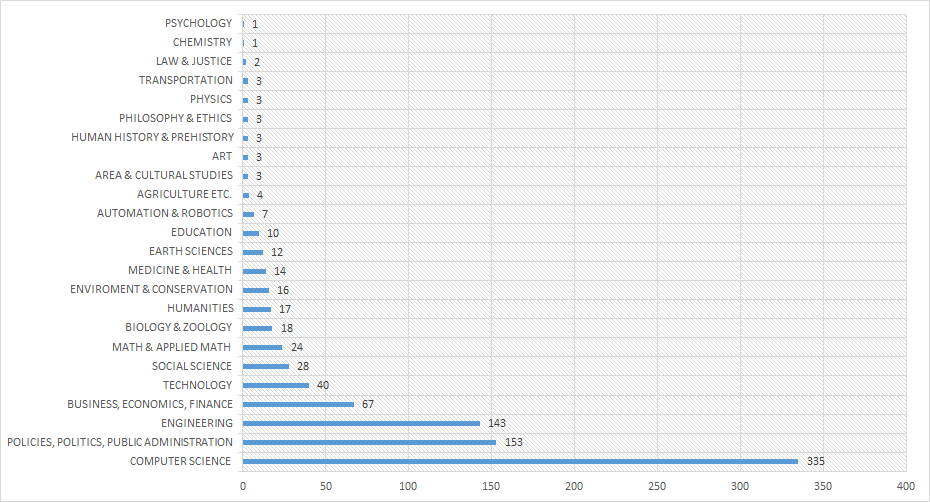Open data - Download the Knowledge base
You are free to download the data of this Knowledge base.
To do this you must be an authenticated user: log in or sign in now.
All the data are licensed as Creative Common CC-BY 4.0.
Governance is a term that has a quite broad context and means in its core to shape or design areas of life. E-Governance (Electronic Governance) is devoted to the challenges of shaping life areas in face of digital revolution and information era and affects all sectors encompassing the public, private and civil sector. It also affects communication and exchange between the sectors. Here the new availability of people, processes and data is leading to new formability of life areas and a redistribution of public, private and civic tasks, which are discussed among the term Electronic Governance.
The widely known term Electronic Government affects especially the public sector and is defined as the execution of business processes in public administrations through information and communication technology. E-Governance remains on a higher level and should shape and design E-Government strategies. [1]


| Agenda Setting | Policy Design and Analysis | Policy Implementation | Policy Monitoring and Evaluation | |
|---|---|---|---|---|
| Agriculture, Fisheries, Forestry & Foods | ||||
| Economy & Finance | ||||
| Education, Youth, Culture & Sport | ||||
| Employment & Social Security | ||||
| Environment & Energy | ||||
| Health | ||||
| Foreign Affairs and Defence | ||||
| Justice, Legal System & Public Safety | ||||
| Public Affairs | ||||
| Innovation, Science & Technology | ||||
| Urban Planning & Transport | ||||
| Institutional Questions / Internal Affairs |
You are free to download the data of this Knowledge base.
To do this you must be an authenticated user: log in or sign in now.
All the data are licensed as Creative Common CC-BY 4.0.